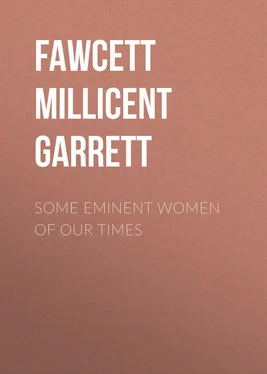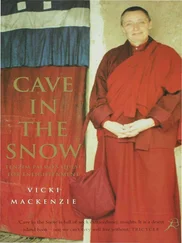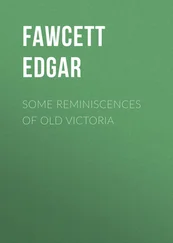Millicent Fawcett - Some Eminent Women of Our Times
Здесь есть возможность читать онлайн «Millicent Fawcett - Some Eminent Women of Our Times» — ознакомительный отрывок электронной книги совершенно бесплатно, а после прочтения отрывка купить полную версию. В некоторых случаях можно слушать аудио, скачать через торрент в формате fb2 и присутствует краткое содержание. Жанр: foreign_antique, foreign_prose, на английском языке. Описание произведения, (предисловие) а так же отзывы посетителей доступны на портале библиотеки ЛибКат.
- Название:Some Eminent Women of Our Times
- Автор:
- Жанр:
- Год:неизвестен
- ISBN:нет данных
- Рейтинг книги:3 / 5. Голосов: 1
-
Избранное:Добавить в избранное
- Отзывы:
-
Ваша оценка:
- 60
- 1
- 2
- 3
- 4
- 5
Some Eminent Women of Our Times: краткое содержание, описание и аннотация
Предлагаем к чтению аннотацию, описание, краткое содержание или предисловие (зависит от того, что написал сам автор книги «Some Eminent Women of Our Times»). Если вы не нашли необходимую информацию о книге — напишите в комментариях, мы постараемся отыскать её.
Some Eminent Women of Our Times — читать онлайн ознакомительный отрывок
Ниже представлен текст книги, разбитый по страницам. Система сохранения места последней прочитанной страницы, позволяет с удобством читать онлайн бесплатно книгу «Some Eminent Women of Our Times», без необходимости каждый раз заново искать на чём Вы остановились. Поставьте закладку, и сможете в любой момент перейти на страницу, на которой закончили чтение.
Интервал:
Закладка:
Her study of the problem, how to help the poor, began in this way. A beggar-woman with a child in her arms stopped her in the street. Mrs. Fry, seeing that the child had whooping-cough and was dangerously ill, offered to go with the woman to her home in order more effectually to assist her. To Mrs. Fry’s surprise, the woman immediately tried to make off; it was evident what she wanted was a gift of money, not any help to the suffering child. Mrs. Fry followed her, and found that her rooms were filled with a crowd of farmed-out children in every stage of sickness and misery; the more pitiable the appearance of one of these poor mites, the more useful an implement was it in the beggar’s stock-in-trade. From this time onwards the condition of women and children in the lowest and most degraded of the criminal classes became the study of Mrs. Fry’s life. She had the gift of speech on any subject which deeply moved her. From about 1809 she began to speak at the Friends’ meeting-house. This power of speaking, as well as working, enabled her to draw about her an active band of co-workers. When she first began visiting the female prisoners in Newgate it is probable that she could not have supported all that she had to go through if it had not been for the sympathy and companionship of Anna Buxton and other Quaker ladies whom she had roused through her power of speech, just as she had herself been roused when a girl by the preaching of William Savery.
The condition of the women and children in Newgate Prison, when Mrs. Fry first began visiting them in 1813, was more horrible than anything that can be easily imagined. Three hundred poor wretches were herded together in two wards and two cells, with no furniture, no bedding of any kind, and no arrangements for decency or privacy. Cursing and swearing, foul language, and personal filthiness, made the dens in which the women were confined equally offensive to ear, eye, nose, and sense of modesty. The punishment of death at that time existed for 300 different offences, and though there were many mitigations of the sentence in the case of those who had only committed minor breaches of the law, yet the fact that nearly all had by law incurred the penalty of death, gave an apparent justification for herding the prisoners indiscriminately together. It thus happened that many a poor girl who had committed a comparatively trivial offence, became absolutely ruined in body and mind through her contact in prison with the vilest and most degraded of women. No attempt whatever was made to reform or discipline the prisoners, or to teach them any trade whereby, on leaving the gaol, they might earn an honest livelihood. Add to this that there were no female warders nor female officers of any kind in the prison, and that the male warders were frequently men of depraved life, and it is not difficult to see that no element of degradation was wanting to make the female wards of Newgate what they were often called – a hell on earth.
When Elizabeth Fry and Anna Buxton first visited this Inferno, there was so little pretence at any kind of control over the prisoners, that the Governor of Newgate advised the ladies to leave their watches behind them at home. Mrs. Fry, with a wise instinct, felt that the best way of influencing the poor, wild, rough women was to show her care for their children. Many of the prisoners had their children with them in gaol, and there were very few even of the worst who could not be reached by care for their little ones. Even those who had no children were often not without the motherly instinct, and could be roused to some measure of self-restraint and decency for the sake of the children who were being corrupted by their example. So Mrs. Fry’s first step towards reforming the women took the form of starting a school for the children in the prison. As usual in all good work of a novel kind, those who knew nothing about it were quite sure that Mrs. Fry would have been much more usefully employed if she had turned her energies in a different direction. People who have never stirred a finger to lighten the misery of mankind always know, so much better than the workers, what to do and how to do it. They would probably tell a fireman who is entering a burning house at the risk of his life, that he would be more usefully employed in studying the chemical action of fire, or in pondering over the indestructibility of matter. The popular feeling with regard to Mrs. Fry’s work in Newgate was embodied by Thomas Hood in a ballad which is preserved in his collected works, and serves now to show how wrong a good and tender-hearted man may be in passing judgment on a work of the value of which he was entirely unqualified to form an opinion. The refrain of the poem is “Keep your school out of Newgate, Mrs. Fry” —
I like the pity in your full-brimmed eye.
I like your carriage and your silken gray,
Your dove-like habits and your silent preaching,
But I don’t like your Newgatory teaching.
No, I’ll be your friend, and like a friend
Point out your very worst defect. Nay, never
Start at that word! But I must ask you why
You keep your school in Newgate, Mrs. Fry.
Mrs. Fry’s philanthropy was not of a kind to be checked by a ballad, and she went on perseveringly with her work; the school was formed, and a prisoner, named Mary Cormor, was the first schoolmistress. A wonderful change gradually became apparent in the demeanour, language, and appearance of the women in prison. In 1817 an association was formed for carrying on the work Mrs. Fry had begun. It was called “An Association for the Improvement of the Female Prisoners in Newgate.” Its first members were eleven Quakeresses and one clergyman’s wife. Public attention was now alive to the importance of the work; and in the following year a Select Committee of the House of Commons was appointed to inquire and report upon the condition of the London prisons. Mrs. Fry was examined before this committee. Her chief recommendations were that the prisoners should be employed in some industry, and be paid for their work, and that good conduct should be encouraged by rewards; she was also most urgent that the women prisoners should be in the charge of women warders. Her work in the prison naturally led her to consider the condition and ultimate fate of women who were transported. Transportation was then carried out upon a large scale, and all the evils of the prison existed in an intensified form on board the transport ships. The horrors of the voyage were followed by a brutal and licentious distribution of the women on their arrival to colonists, soldiers, and convicts, who went on board and took their choice of the human cargo. Mrs. Fry’s efforts resulted in a check being placed on these shameful barbarities. The women were, owing to her exertions, sent out in charge of female warders, and they were provided with decent accommodation on their arrival.
Читать дальшеИнтервал:
Закладка:
Похожие книги на «Some Eminent Women of Our Times»
Представляем Вашему вниманию похожие книги на «Some Eminent Women of Our Times» списком для выбора. Мы отобрали схожую по названию и смыслу литературу в надежде предоставить читателям больше вариантов отыскать новые, интересные, ещё непрочитанные произведения.
Обсуждение, отзывы о книге «Some Eminent Women of Our Times» и просто собственные мнения читателей. Оставьте ваши комментарии, напишите, что Вы думаете о произведении, его смысле или главных героях. Укажите что конкретно понравилось, а что нет, и почему Вы так считаете.




![Корнелл Вулрич - Murder at Mother’s Knee [= Something That Happened in Our House]](/books/398097/kornell-vulrich-murder-at-mother-s-knee-somethin-thumb.webp)







